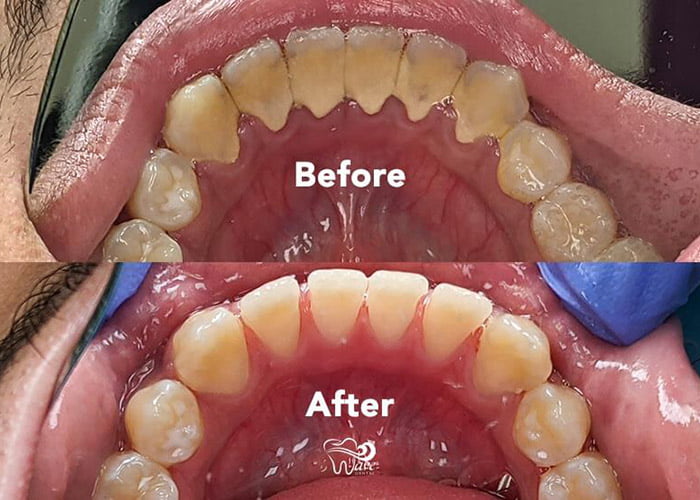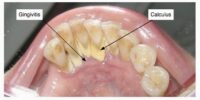Dental Deep Cleaning: Procedures And Costs

Are you noticing that your teeth aren’t as white and sparkly as they used to be? It may be time for a dental deep cleaning. This type of cleaning can help you restore your smile to its previous luster.
Dental deep cleaning is a procedure that removes plaque and tartar buildup in areas of your mouth that regular brushing can’t reach. In this article, we’ll discuss the different types of dental deep cleaning procedures, the benefits, the process, aftercare, and the cost.
Keep reading to learn more about how a dental deep cleaning can help you get your smile back.
What is Dental Deep Cleaning?
A thorough clean of your pearly whites, dental deep cleaning is a must for a healthy smile.
Dental deep cleaning, also known as scaling and root planing, is a procedure that dentists recommend to help remove plaque, tartar, and bacteria from the teeth and gums. It is an essential part of periodontal (gum) disease treatment.
During the procedure, a dentist or hygienist will use a scaler to remove plaque and tartar from above and below the gum line. Root planing is then used to smooth the surfaces of the roots of the teeth, which helps the gums heal and reattach to the teeth.
Dental deep cleaning is most often recommended if a patient has developed periodontal disease, or if they’re at risk for developing it.
Types of Dental Deep Cleaning Procedures
You may be wondering what kinds of treatments are available to maintain a healthy mouth, and there are a variety of options to choose from. One of these is dental deep cleaning, also known as scaling and root planing, which is commonly used to treat periodontal disease.
During the procedure, your dentist will use specialized tools to remove the plaque and tartar, and then smooth the surfaces of the teeth to prevent further bacterial buildup. This procedure can take several visits and is usually followed up with a professional cleaning.
Another type of dental deep cleaning is oral irrigation, which involves using a high-pressure water stream to remove plaque and bacteria from the teeth and gums. This procedure is often used in conjunction with scaling and root planing to ensure that all of the buildup has been removed.
Oral irrigation is also very effective at removing food particles that are stuck between the teeth and gums, helping to reduce the risk of tooth decay and gum disease.
Benefits of Dental Deep Cleaning
Experiencing the benefits of a dental deep cleaning can help you enjoy improved oral health and a more confident smile. Regular dental hygiene is important for keeping your teeth and gums healthy, but dental deep cleaning helps to address existing buildup of plaque and tartar that has accumulated beneath the gum line.
This type of cleaning is important for helping to prevent tooth decay, gum disease, and for maintaining a healthy mouth overall. A dental deep cleaning helps to remove the excess plaque and tartar which can cause inflammation and infection in the gums. It helps to reduce the pockets that form between the gums and teeth, which can lead to halitosis, or bad breath.
Additionally, it can help to reduce the risk of gum disease and tooth decay, as well as the presence of bacteria that can cause gum disease. With regular dental deep cleanings, you can enjoy improved oral health and a more confident smile.
The Process of Dental Deep Cleaning
During a dental deep cleaning, your dentist will work to remove bacteria, plaque, and tartar buildup that has accumulated beneath your gum line, helping to protect your teeth and gums from infection and decay.
The procedure typically begins with your dentist using a dental scaler to break up and remove any plaque, tartar, and bacteria that have built up beneath your gum line.
After this, they may use an ultrasonic instrument to break up and remove any remaining plaque and tartar.
Your dentist may also use a special brush to further clean the area and flush away bacteria and debris.
Finally, they may use a polishing instrument to smooth out the surfaces of your teeth.
The entire process typically takes around an hour and may require a few visits to the dentist.
After the deep cleaning, your dentist may recommend that you return for regular cleanings to maintain your oral health.
Preparation for Dental Deep Cleaning
Before undergoing the dental deep cleaning, be sure to ask your dentist any questions you may have so you can feel comfortable and confident about the process.
During the initial appointment, your dentist will evaluate the current condition of your teeth and gums and discuss any potential risks associated with the procedure. Depending on the severity of your gum disease, they may recommend a local anesthetic to reduce any discomfort you might experience.
Your dentist will also ask about any medications or supplements you’re taking, as well as any allergies you may have, to ensure your safety during the procedure. It’s also important to inform your dentist if you’ve had any dental work recently, as this could affect the results of the deep cleaning.
Lastly, they will go over the cost of the procedure and discuss any payment options you may have. Don’t be afraid to ask questions and get clarification on any of the information you receive.
Aftercare for Dental Deep Cleaning
Taking proper care of your teeth and gums after a dental deep cleaning is essential for maintaining your oral health. After the procedure, your dentist will give you specific instructions on how to care for your teeth.
This may include brushing and flossing more often than usual, avoiding sugary foods, and using an antibacterial rinse. You should also attend regular check-ups and cleanings to prevent the buildup of plaque and tartar.
If the deep cleaning was done to treat a gum infection, your dentist may also recommend you take a course of antibiotics. Following your dentist’s instructions and maintaining good oral hygiene habits is key to preventing future dental problems.
You should also keep an eye out for any signs of discomfort or infection, such as bleeding gums or tooth pain. If you experience any of these symptoms, contact your dentist right away.
With proper care, a dental deep cleaning can leave you with healthier, brighter teeth and gums for years to come.
Cost of Dental Deep Cleaning
The price tag associated with a thorough dental cleaning can be intimidating, but the long-term benefits are well worth it. The cost of a deep dental cleaning depends on the severity of the individual’s condition, as well as the geographic location of the dental clinic. A deep cleaning typically costs anywhere from $150 to $400, depending on the individual’s dental plan. Insurance may cover some, or all, of the cost.
It’s important to talk to your dentist to get an estimate of what your out-of-pocket costs will be. In addition to the cost of the deep cleaning itself, patients may need to pay for additional treatments such as X-rays, periodontal scaling, and antibiotics. Again, the out-of-pocket cost for these treatments will depend on the individual’s insurance coverage.
To ensure that the procedure is done correctly and with minimal discomfort, it is important to find an experienced dentist who offers quality care at an affordable price.
Find a Qualified Dentist for Dental Deep Cleaning
Finding an experienced and qualified dentist to perform a deep cleaning is essential for a successful procedure and peace of mind. You can start your search by consulting with your regular dentist or primary care physician who can provide referrals to a specialist.
You should also look for dentists who are members of the American Dental Association, as this indicates that they’re up to date on the latest dental techniques.
When selecting a dentist for your deep cleaning, it’s important to research their qualifications, experience, and reviews. You can also talk to the dentist directly to get a better idea of their expertise and approach to dentistry. Ask them questions about their credentials, practices, and processes to ensure that you trust them with this procedure.
Be sure to also discuss the costs associated with the procedure so that you can plan your budget.
Conclusion
You now know what dental deep cleaning is and its different types of procedures. The benefits are clear, and it’s important to find a qualified dentist to get the best results. So, don’t delay any longer and get your dental deep cleaning done as soon as possible.
It’ll help you maintain good oral health and give you a healthier, brighter smile. Plus, it can even help you save money in the long run. Don’t hesitate and schedule an appointment with a qualified dentist today.









